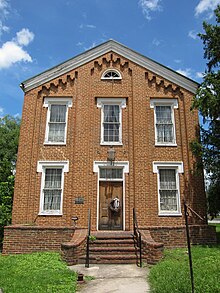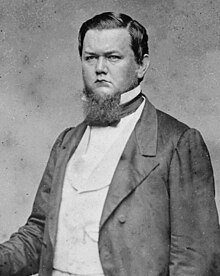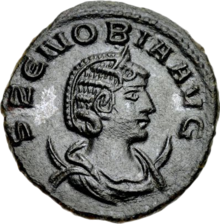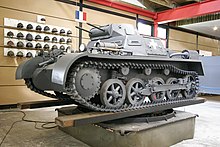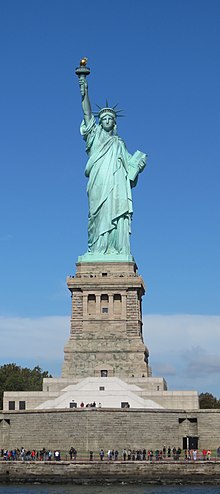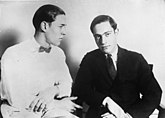Portal:History
The History Portal

History by Frederick Dielman
History (derived from Ancient Greek ἱστορία (historía) 'inquiry; knowledge acquired by investigation') is the systematic study and documentation of the human past.
The period of events before the invention of writing systems is considered prehistory. "History" is an umbrella term comprising past events as well as the memory, discovery, collection, organization, presentation, and interpretation of these events. Historians seek knowledge of the past using historical sources such as written documents, oral accounts, art and material artifacts, and ecological markers. History is incomplete and still has debatable mysteries.
History is an academic discipline which uses a narrative to describe, examine, question, and analyze past events, and investigate their patterns of cause and effect. Historians debate which narrative best explains an event, as well as the significance of different causes and effects. Historians debate the nature of history as an end in itself, and its usefulness in giving perspective on the problems of the present.
Stories common to a particular culture, but not supported by external sources (such as the tales surrounding King Arthur), are usually classified as cultural heritage or legends. History differs from myth in that it is supported by verifiable evidence. However, ancient cultural influences have helped create variant interpretations of the nature of history, which have evolved over the centuries and continue to change today. The modern study of history is wide-ranging, and includes the study of specific regions and certain topical or thematic elements of historical investigation. History is taught as a part of primary and secondary education, and the academic study of history is a major discipline in universities.
Herodotus, a 5th-century BC Greek historian, is often considered the "father of history", as one of the first historians in the Western tradition, though he has been criticized as the "father of lies". Along with his contemporary Thucydides, he helped form the foundations for the modern study of past events and societies. Their works continue to be read today, and the gap between the culture-focused Herodotus and the military-focused Thucydides remains a point of contention or approach in modern historical writing. In East Asia, a state chronicle, the Spring and Autumn Annals, was reputed to date from as early as 722 BC, though only 2nd-century BC texts have survived. (Full article...)
Featured picture
Did you know (auto generated)

- ... that in 2007, Arthur Gray's £2 Kangaroo and Map stamp sold for a world record price for a single Australian stamp?
- ... that during the early-access period of Hogwarts Legacy, the game set a new record on Twitch with the largest number of concurrent viewers for a single-player game in history?
- ... that the cultural scholar Hermann Bausinger wrote a book about the history of literature from Swabia from the 18th century to the present, published for his 90th birthday?
- ... that American Colossus, a history book that describes how a banker bailed out the U.S. government in 1895, was published around a time when the U.S. government bailed out banks?
- ... that alongside a 7th-century BC Phoenician shipwreck, two additional wrecks from various historical periods were unearthed in Bajo de la Campana, situated off the coast of Cartagena, Spain?
- ... that the government of Victoria, Australia, has a program to remove 110 level crossings by 2030, the fastest rate in the state's history?
John Linton Treloar, OBE (10 December 1894 – 28 January 1952), commonly referred to during his life as J. L. Treloar, was an Australian archivist and the second director of the Australian War Memorial (AWM). During World War I he served in several staff roles and later headed the First Australian Imperial Force's (AIF) record-keeping unit. From 1920 Treloar played an important role in establishing the AWM as its director. He headed an Australian Government department during the first years of World War II, and spent the remainder of the war in charge of the Australian military's history section. Treloar returned to the AWM in 1946, and continued as its director until his death.
Treloar's career was focussed on the Australian military and its history. Prior to World War I he worked as a clerk in the Department of Defence and, after volunteering for the AIF in 1914, formed part of the Australian Army officer Brudenell White's staff for most of the war's first years. He was appointed commander of the Australian War Records Section (AWRS) in 1917. In this position, he improved the AIF's records and collected a large number of artefacts for later display in Australia. Treloar was appointed the director of what eventually became the AWM in 1920, and was a key figure in establishing the Memorial and raising funds for its permanent building in Canberra. He left the AWM at the outbreak of World War II to lead the Australian Government's Department of Information, but was effectively sidelined for much of 1940. In early 1941 he was appointed to command the Australian military's Military History and Information Section with similar responsibilities to those he had held during World War I. He attempted to intervene in the management of the AWM during his absence, however, to the increasing frustration of its acting director. Treloar worked intensely in all his roles and suffered periods of ill-health as a result. Following the war, he returned to the Memorial in 1946 but his performance deteriorated over time, possibly due to exhaustion. He died in January 1952. (Full article...)On this day
May 21: World Day for Cultural Diversity for Dialogue and Development
- 1138 – The Crusades: The siege of Shaizar ended, and the Emir of Shaizar became a vassal of the Byzantine Empire.
- 1864 – American Civil War: The inconclusive Battle of Spotsylvania Court House in Virginia ended with combined Union and Confederate casualties totaling around 31,000.
- 1894 – The Manchester Ship Canal, linking Manchester in North West England to the Irish Sea, officially opened, becoming the world's largest navigation canal at the time.
- 1924 – University of Chicago students Nathan Leopold Jr. and Richard Loeb (both pictured) murdered a 14-year-old boy in a thrill killing out of a desire to commit a "perfect crime".
- 2014 – A Taiwanese man carried out a stabbing spree on a Taipei Metro train, killing four people and injuring 24 others.
- Feng Dao (d. 954)
- Tommaso Campanella (d. 1639)
- Armand Hammer (b. 1898)
- Linda Laubenstein (b. 1947)
Selected quote
Our march to freedom is irreversible. We must not allow fear to stand in our way.
— Nelson Mandela, 1st South African President
Related portals
More Did you know...
- ... that the underground Fortress of Mimoyecques (pictured) was built by Nazi Germany to bombard London with 10 shells a minute using the V-3 supergun?
- ... that Howard P. Perry was the first African American recruit in the United States Marine Corps?
- ... that the Chester city walls form the most complete circuit of Roman and medieval defensive town walls in Britain?
- ... that China's first female director was adopted by the first Premier of the People's Republic of China?
- ... that the Medieval Merchant's House in Southampton was being used as a brothel when bomb damage during the Blitz revealed the building's important medieval architecture?
- ... that the Sumerian "river of paradise", the Hubur, derived partly from real geography before becoming a demonic fantasy?
- ... that Bill Foley's photograph "The Last Smile" shows Anwar Sadat only moments before his assassination?
- ... that the 1911 Sarez earthquake triggered a huge landslide, forming the tallest dam in the world?
Topics
Categories

History • By period • By region • By topic • By ethnic group • Historiography • Archaeology • Books • Maps • Images • Magazines • Organizations • Fictional • Museums • Pseudohistory • Stubs • Timelines • Chronology • People • Wikipedia historians
WikiProjects
![]() WikiProject History •
Ancient Near East • Australian History • Classical Greece and Rome • Dacia • Former countries • History of Canada • Chinese history • European history • Heraldry and vexillology • Indian history • Jewish history • Medieval Scotland • Mesoamerica • Military history • Middle Ages • History of Science
WikiProject History •
Ancient Near East • Australian History • Classical Greece and Rome • Dacia • Former countries • History of Canada • Chinese history • European history • Heraldry and vexillology • Indian history • Jewish history • Medieval Scotland • Mesoamerica • Military history • Middle Ages • History of Science
WikiProject Time • Days of the Year • Years
WikiProject Biography • Composers • Political figures • Saints • United States Presidents
Things you can do
 |
Here are some tasks awaiting attention:
|
Associated Wikimedia
The following Wikimedia Foundation sister projects provide more on this subject:
-
Commons
Free media repository -
Wikibooks
Free textbooks and manuals -
Wikidata
Free knowledge base -
Wikinews
Free-content news -
Wikiquote
Collection of quotations -
Wikisource
Free-content library -
Wikiversity
Free learning tools -
Wiktionary
Dictionary and thesaurus



